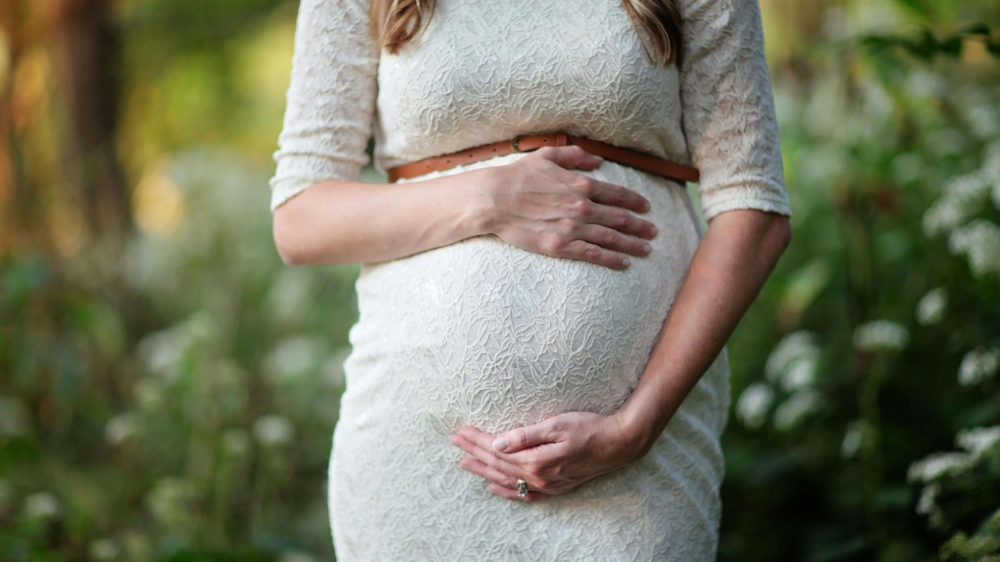Pregnancy After Loss: Navigating the Anxiety
Being pregnant after a loss, whether a stillbirth, miscarriage, or infant loss, is a time filled with complex emotions. The excitement of being pregnant again is mixed with grief, and hope for the future is tinged with fear. As a therapist who has walked this path and who journeys alongside parents who are experiencing pregnancy after loss, I understand how complicated and terrifying this time can be.
 I want to provide a gentle, comforting space where we can talk through your thoughts and experiences so that you can enjoy this pregnancy while holding space to address what feels heavy. Your feelings are valid, and you deserve compassionate care to navigate this deeply personal experience.
I want to provide a gentle, comforting space where we can talk through your thoughts and experiences so that you can enjoy this pregnancy while holding space to address what feels heavy. Your feelings are valid, and you deserve compassionate care to navigate this deeply personal experience.
Grief Doesn’t Go Away- It Changes
There are so many feelings that can occur after a loss, such as sadness, anger, grief, guilt, relief, fear, anxiety, numbness, and confusion- in any combination or all at once! Grief doesn’t exist in a bubble but occurs alongside the ups and downs of daily life. It’s so hard to manage feelings of grief while experiencing a time you’re excited (or expect to feel excited). Grief may soften over time, but it can also re-emerge in new ways during a subsequent pregnancy. You might find yourself mourning all over again or feel guilty about looking forward to the future. This is normal. Grief is not a straight line; it’s a winding road, and healing doesn’t look like consistent progress. Grief often comes in waves, and reminders of loss can pop up anywhere. Be gentle with yourself as these waves come and go.
Understanding Anxiety in a New Pregnancy
After a loss, anxiety in pregnancy is incredibly common. I call it the “burden of knowledge,” as you’re more aware of what could go wrong. You might find yourself hypervigilant—scanning your body for symptoms, analyzing every movement or lack of movement from the baby, or researching medical information. The “blissful ignorance” from your first pregnancy may feel shattered, and that’s heartbreaking in its own way.
Let’s name some of the common worries I see in my practice:
- Fear of losing this baby
- Guilt for being pregnant again
- Difficulty enjoying this pregnancy or feeling connected to this baby
- Overwhelming flashbacks or memories from the loss
- Hyper-awareness of medical information or past trauma
Naming your fears and talking through them with someone you trust helps reduce their power. Your anxiety is not irrational; it’s protective. Your brain and body are trying to keep you safe from more pain. While anxiety can feel alarming, it doesn’t always reflect the truth. Anxious thoughts and feelings will naturally pop up, but they don’t have to run your life.
Tools for Coping with Pregnancy After Loss
Here are a few supportive practices I recommend to my clients who are navigating pregnancy after loss:
Create a Grounding Routine
 A consistent routine can help soothe an overactive nervous system. This might include a peaceful morning routine, stretching, breathing exercises, or a nightly “wind-down” routine to move from work and responsibilities to relaxation. If you like affirmations, statements that focus on the present moment can be grounding, like “In this moment, I am safe” or “Today, I feel healthy.”
A consistent routine can help soothe an overactive nervous system. This might include a peaceful morning routine, stretching, breathing exercises, or a nightly “wind-down” routine to move from work and responsibilities to relaxation. If you like affirmations, statements that focus on the present moment can be grounding, like “In this moment, I am safe” or “Today, I feel healthy.”
Find a Trauma-Informed Provider
It’s crucial to work with medical providers who understand pregnancy after loss. You should feel heard, respected, and supported in your fears and needs—whether that means more frequent checkups, early ultrasounds, or simply a compassionate space to express your concerns.
Consider how you might honor the baby you lost.
For some, naming the baby, having a memory book, or creating a special place with keepsakes can help affirm their place in your heart and connect to a part of your family’s story. They are not being replaced by this new life—they remain with you, even as you grow.
Mind-Body Practices
Movement, meditation, journaling, and noticing what you are feeling in the moment can help make strong emotions more manageable. The goal isn’t to get rid of painful feelings, but to allow complex emotions like fear and hope to coexist, gently.
Therapy and Support Groups
Therapy can be a vital lifeline during this time. Processing grief, trauma, and anxiety with a competent therapist allows you to carry your emotions without being consumed by them. There are also beautiful communities of bereaved parents who can walk alongside you, groups where you don’t have to explain why your joy feels so complicated.
Let Yourself Feel Both Joy and Grief
There is no “right way” to feel during pregnancy after loss. Some days you might be looking ahead with excitement; other days you might be terrified to shop for baby clothes or imagine the future. That’s perfectly normal. You are doing an incredibly brave thing by choosing to hope again, even with a tender heart.
 Try to give yourself permission to feel all your feelings, knowing they are all valid and will pass. You are not broken, and you are not alone. You have experienced a tremendous loss and are now moving through an uncertain time.
Try to give yourself permission to feel all your feelings, knowing they are all valid and will pass. You are not broken, and you are not alone. You have experienced a tremendous loss and are now moving through an uncertain time.
Find Support for Your Journey with Pregnancy Therapy in Atlanta, GA
If you need help along the way—if the anxiety or grief becomes overwhelming—please reach out to a mental health professional who understands perinatal loss. You deserve a gentle space to honor the complexity of your story. At Informed Therapy Group, we have compassionate therapists who can offer support in holding the grief and uncertainty as you move forward in hope. You can start your therapy journey by following these simple steps:
- Request an appointment through our contact page, call(404) 444-8974, or email admin@informedtherapy.com.
- Meet with an experienced therapist in Atlanta, GA.
- Start processing your past and finding hope again!
Other Services Offered at Informed Therapy Group in Georgia
Our compassionate therapists at Informed Therapy Group take a multifaceted approach to mental health. In addition to pregnancy counseling, we offer neurodivergent therapy in Atlanta, GA, anxiety therapy, depression therapy, and grief and loss counseling. We also specialize in couples counseling, therapy for stress management, and postpartum therapy. Explore our About Us page, visit our blog, or read our FAQs to learn more about how we can help you.
About the Author
Melissa Light, LPC, NCC, PMH-C, is a licensed professional counselor and nationally certified clinician with over a decade of experience supporting individuals in their emotional growth. Specializing in Cognitive Behavioral Therapy (CBT) and Dialectical Behavior Therapy (DBT), Melissa offers a compassionate, evidence-based approach that creates a space for clients to connect with themselves and feel more present in their lives as they navigate transitions, emotions, and personal growth. Her specialty areas include Perinatal Mental Health and autistic or ADHD adults. Known for creating a warm, welcoming space, Melissa empowers clients to explore their stories at their own pace. Outside of her practice, she enjoys the chaos and joy of family life with her husband, two children, and labradoodle, Fozzie. She can often be found hiking, baking, or painting with watercolors— embracing creativity and the beauty of imperfection.


